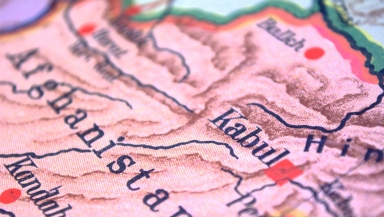
Afghan Christians are facing barriers to humanitarian assistance because of persecution under the Taliban and in neighbouring countries where they have fled, a Christian charity has warned.
International Christian Concern (ICC), which monitors persecution hotspots, is calling on the international community to maintain pressure on the Taliban a year after it returned to power in Afghanistan.
It warns that attempts by the Taliban to present a softer image disguise the harsh reality for those who do not follow their extremist ideology.
This includes Christians who have faced "severe" human rights abuses since the Taliban takeover.
Matias Perttula, ICC's Director of Advocacy, said, "Early on the Taliban attempted to signal to the world how they have reformed. Nothing could be further from the truth.
"The Taliban continue to persecute and oppress all who do not fall in line with their extremist interpretation of Shariah Law. The world must maintain the pressure on the Taliban."
The persecution of Christians in Afghanistan is detailed in a new ICC report, which documents the impact of the Taliban takeover on religious freedom in the country.
It describes how in the past year Christians have been killed, tortured to inform on other Christians, kidnapped and held for ransom.
Tactics used by the Taliban to uncover Christians include monitoring mosques to see who does not attend prayers, and confiscating the phones of suspected believers to look through their messages and contacts.
Christians have become internally displaced persons (IDPs) within Afghanistan but because they are in hiding, they are "isolated from the humanitarian aid normally provided to IDPs", the ICC warns.
"The Taliban's policy of concealment regarding the presence of Afghan Christians forces the Christian community into hiding," the report says.
"The policy ostracizes Christians in all social sectors, worsening their humanitarian situation. By stripping away all open Christian identity, the Taliban ensures Christians have no place in Afghanistan society."
Leaving Afghanistan is "a highly restricted privilege enjoyed only by a select few". The elderly, widows and unmarried women are among those most unlikely to be able to leave.
Even those who have been able to flee have faced persecution in neighbouring countries like Pakistan, which has its own poor track record against Pakistani Christians and has clamped down on refugees.
In some cases, the experience of Afghan Christians there has been so bad that they have returned to Afghanistan.
"Pakistan remains the natural exit for many Afghans. But in Pakistan, they are blocked from humanitarian assistance by Pakistani authorities, and reports of severe abuse by the Pakistani community towards Afghans are rampant," the report says.
"Christians are particularly isolated, and some have consequently returned home to Afghanistan."
Claire Evans, ICC's Senior Assistance Manager, said, "Whether they remain inside Afghanistan or migrate elsewhere, Afghan Christians cannot seek out humanitarian aid at the same capacity and through the same channels as other Afghans.
"Consequently, providing humanitarian assistance to Afghan Christians requires a long-term strategy that matches the fluidity of the situation on the ground."













